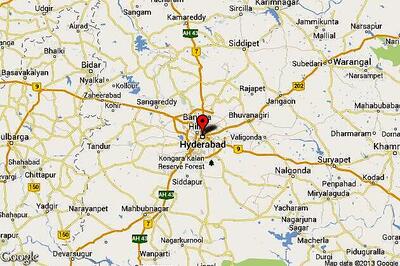
views
New Delhi: The situation in 16 of the country's 37 tiger reserves is "truly alarming" and calls for "appropriate interventions" if they are not to lose all their big cats, the Rajya Sabha was informed on Tuesday.
"Our analysis shows that the situation in 16 reserves is truly alarming and they stand to lose all their tigers if the appropriate interventions and initiatives are not taken to improve the situation," Minister of State for Environment and Forests Jairam Ramesh said while responding to a calling notice by Rajiv Pratap Rudy of the Bharatiya Janata Party (BJP).
"These 16 reserves are in the danger zone from where tigers have vanished or are on the brink of vanishing," Ramesh said.
"Twelve reserves are in good condition, while the situation in the remaining nine is satisfactory but needs to improve," he maintained.
"The main reasons for tiger decline include poaching, degradation of forest status outside tiger reserves and protected areas due to human pressure, livestock pressure and ecologically unsustainable land-use.
"This has caused fragmentation of habitat, leading to mortality of tigers and their prey due to man-animal conflicts," Ramesh said.
"Heavily used infrastructure like highways and rail tracks disturb wild animals while causing their death due to road/train hits. Overall, there is a loss of forest quality in terms of prey biomass to support large carnivores like tigers and leopards," the minister added.
Referring to efforts to curb poaching--largely the cause of the alarming decline in the tiger population to 1,165-1,657 from the 1988 figure of 4,500, he said a 200-page report had been submitted to the Madhya Pradesh government on conditions in the Panna reserve in the state that lost its last male tiger four months ago.
"We have provided evidence. We have provided details. If action is taken in even one case, it will send a strong message across the country.
"Panna is a test case. We will provide whatever assistance but it is for the state government to act against the poachers," Ramesh maintained.
He replied in the affirmative when asked if the central government was planning to strengthen legislation to curb poaching and other illegal activities in forest reserves.
"This is a very large issue. I am seeking approval for creating a National Green Tribunal. It will hear all cases relating to the environment and forests.
"The attorney general has supported the proposal (for the tribunal) that was made by the Law Commission," Ramesh said, adding: "If the act (Wildlife Protection Act) needs to be redone, this will be done.
"We also have the Wildlife Crime Control Bureau. This will be strengthened to give it teeth," he said.
Detailing the steps being taken to conserve the country's tiger population, he said a "core inviolate" area had been created in each reserve in which no human habitation is permitted.
"This has resulted in the displacement of 80,000 to 100,000 people to a buffer zone outside the core inviolate area. Previously, each family was being paid Rs.100,000 in compensation. This has now been raised to Rs 10 lakh per family," Ramesh said.
"The second major intervention is the memorandums of understanding that are being signed between the central government, the state governments and the tiger reserves that will spell out the responsibilities of each of the stakeholders," he added.
The debate on the issue lasted close to 70 minutes and generated much passion among MPs.




















Comments
0 comment